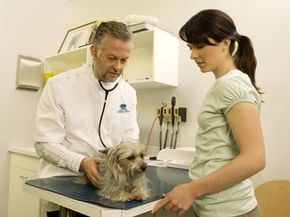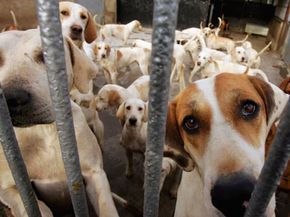Quck answer
Bordetella vaccines work by stimulating the body’s immune system to produce antibodies against the bacteria that cause respiratory infections in dogs and humans. These vaccines contain a small amount of the bacteria or a component of it, which triggers the immune response without causing disease. Once the immune system has produced the antibodies, they remain in the body and can quickly recognize and attack the bacteria if it enters the body in the future. Vaccination is the most effective way to protect against Bordetella infections, but it is not 100% effective and other prevention measures such as good hygiene and avoiding contact with infected animals are also important.
Pets

When it comes to pet care, people spare no expense. The pet industry is booming, with over 70 million households owning at least one pet in the United States alone. Dogs and cats are the most popular pets, with millions of them receiving veterinary care each year. One aspect of pet immunization is the Bordetella vaccine, which protects against kennel cough, a bacterial illness that is highly contagious among dogs. This article will explain the functions of Bordetella vaccines and why they may be necessary for your pet’s health and well-being.
Kennel Cough and Bordetella

Kennel cough, or Bordetella bronchiseptica, is a bacterial illness that can be contracted when dogs are kept in close quarters with other dogs. Facilities with poor ventilation, such as boarding services and veterinary offices, are common places for dogs to catch the illness. To prevent the spread of kennel cough, boarding facilities require dogs to have a Bordetella vaccination before they can stay overnight. Pet owners should also consider vaccinating their dogs against Bordetella if they frequent areas with a high concentration of dogs or if they are planning to board their dog in the near future.
Dogs have a natural defense mechanism in their respiratory system called the mucociliary escalator, which helps to move trapped debris out of the respiratory tract. This process is aided by little hair-like structures called cilia, which act as scrubbing pads. If the mucociliary escalator is damaged, infections can easily spread to the lungs. Kennel cough is a common illness that dogs can acquire if they are stressed, exposed to heavy dust, poor ventilation, cold temperatures, or cigarette smoke. The illness is characterized by a hacking cough similar to a chest cold. Bordetella bronchiseptica, a bacteria that causes kennel cough, can attach itself to the cilia of respiratory cells and paralyze them, making it harder for the immune system to fight the infection. The incubation period for kennel cough is between two and 14 days, during which time the dog may not show any symptoms. While antibiotics can help to treat kennel cough, the illness usually goes away on its own within four to 10 days. Vaccination with the Bordetella vaccine can help to prevent kennel cough, but it is only effective in about 70 percent of dogs and cannot guarantee complete protection.
The Bordetella vaccine works like all other vaccines by injecting a small amount of the virus or bacteria into the animal’s bloodstream. The vaccine can either contain a living, non-harmful strain of the virus or bacteria or a nonliving, inactive version that can replicate in the body. The nonliving vaccines have adjuvants added to increase their effectiveness as live vaccines are considered to be more effective. The vaccine introduces the body to the virus or bacteria so that the immune system can recognize it and fight against it in the future. The body then produces antibodies to fight against the virus and bacteria. There are two options for vaccinating pets, either a shot or a nasal treatment. The nasal vaccine can be given to puppies as young as three weeks old. There is some dispute among veterinarians about which vaccine provides the best protection against kennel cough. Annual boosters are recommended by some vets, while others believe it is unnecessary if the dog is not boarded. Vaccines carry a risk of allergic reactions, so it’s important to talk to your vet to determine the benefit-risk ratio based on your pet’s lifestyle. The article provides additional resources for pet owners to learn more.
A list of sources related to vaccines for pets is provided. These sources include Drugs.com, Freepatentsonline.com, the American Veterinary Medical Association, Pet Informed, the American Pet Products Association, MSNBC, cavaliersonline.com, Petservice.com, and The Houston Chronicle. The sources cover topics such as the Bordetella Bronchiseptica Intranasal Vaccine, controlling canine influenza, how vaccines work, industry statistics and trends, vaccination of canines, feline Bordetella, and the effectiveness of the Bordetella vaccine. The list provides a range of information for pet owners and those interested in pet health.
FAQ
1. What is Bordetella and why do dogs need a vaccine for it?
Bordetella, also known as kennel cough, is a highly contagious respiratory disease that affects dogs. It can be easily spread from one dog to another through close contact or contaminated surfaces. Dogs that are frequently in contact with other dogs, such as those who go to dog parks, boarding facilities, or grooming salons, are at a higher risk of contracting Bordetella. A vaccine is recommended to protect dogs from this illness and to prevent the spread of the disease.
2. What are the types of Bordetella vaccines available?
There are two types of Bordetella vaccines available: the injectable vaccine and the intranasal vaccine. The injectable vaccine is given as a shot, while the intranasal vaccine is administered through the dog’s nose. The intranasal vaccine is preferred by some veterinarians because it provides local immunity in the nose, where Bordetella infection typically occurs. However, both types of vaccines are effective in protecting dogs against Bordetella.
3. How do Bordetella vaccines work?
Bordetella vaccines work by stimulating the dog’s immune system to produce antibodies against the bacteria that cause Bordetella. These antibodies help the dog’s body recognize and fight off the bacteria if it is exposed to the disease in the future. The intranasal vaccine also helps to stimulate local immunity in the nose, which can help to prevent the bacteria from colonizing in the dog’s respiratory system.
4. How often should dogs be vaccinated against Bordetella?
The frequency of Bordetella vaccination depends on the dog’s lifestyle and risk of exposure. Dogs that are frequently in contact with other dogs should be vaccinated every 6 to 12 months, while dogs that are not at high risk may only need to be vaccinated every 1 to 3 years. It is important to consult with a veterinarian to determine the appropriate vaccination schedule for your dog.
5. Are there any side effects of Bordetella vaccines?
Like all vaccines, Bordetella vaccines can cause side effects in some dogs. Common side effects include mild fever, lethargy, and soreness at the injection site. These side effects usually resolve on their own within a few days. Rarely, more serious side effects such as allergic reactions or anaphylaxis can occur. It is important to monitor your dog closely after vaccination and to contact your veterinarian if you notice any unusual symptoms or behaviors.





Leave a Reply